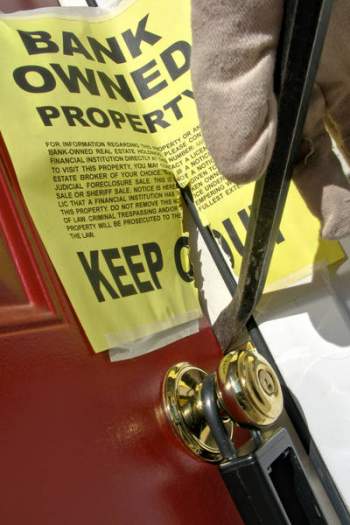
Guide to Repossession Laws

What is Repossession?
The term ‘repossession” refers to an act where a financial institution or lender takes back an object or asset that was either used as collateral, rented, leased or finance in a transaction. Repossession, better known as “repo”, is a type of action where the party who possesses the right of ownership over the underlying property in question takes the property back from the individual or business who assumed the right of possession.
The act of repossessing an item is typically administered when the party possessing the property or asset fails to meet the repayment obligations outlined in the initial purchasing agreement. For example, if you were to finance a car and agreed to the monthly payments, which are set at a fixed rate, but failed to meet the repayment schedule, the dealership of the automobile would come to your place of residence or employment and take the car back. That being said, repossession is typically not undertaken if the borrower or party who has the right of possession misses one payment, however, if the party habitually fails to pay-off the item, the lending institution or owner of the asset will usurp the underlying good.
Repossession is a “self-help” type of action because the original owner of the item—the institution that maintains the right of ownership until the asset is paid off—can assume ownership without invoking a court proceeding. When an item is repossessed, the property is then sold by either the financial institution or a 3rd party seller. The extent to which an institution can initiate repossession and the subsequent execution of the repossession will greatly vary based on jurisdiction.
How is Repossession Administered?
Repossession is carried out in accordance with the purchase or credit contract, agreed upon by the buyer of the item with the seller at the time the transaction was affirmed. In this contract the consumer agrees that the seller (the holder of the loan) may repo the object or property if the singer is past the grace period. Typically the grace period a prime lender will allow is 30 days late making an installment payment, however, this will vary based on how many payments have already been made, the length of the business relationship, the reason why the payment is past due etc.
What are Repossession Laws?
Each state in the United States will institute different repossession laws for difference pieces of property. In the majority of states, repossession laws will maintain uniformity in regards to the time limits and procedures associated with repossession.
For example, generic repossession laws will require the dealership or lender of a car loan to supply the borrower with a written notice of the amount due and the deadline for payment. If this notice is sent, repossession laws will typically require that the notice be hand delivered or sent via certified mail at least 11 days before the payment deadline.
That being said, repossession laws in some states will not require that the notice be sent at all; according to various codes throughout the country, if the creditor chooses not to send the notice, the borrower must be notified via a separate form of communication at least three days after the repossession took place. In addition to the notice of the action, repossession laws state that the letter or communication must inform the lender that he or she has the right to redeem the car.
Repossession laws state that if the lender fails to send this notice, no repossession or storage fees may be charged. Although repossession laws limit a lender’s ability to charge fees associated with the action, the actual act of repossessing an item is typically up to the discretion of the lender in accordance with the initial loan agreement. If you are in danger of having your property repossessed you must understand not only the general repossession laws of your jurisdiction but the lender’s repossession rights outlined in your contractual agreement that was affirmed at the time of purchase.



















